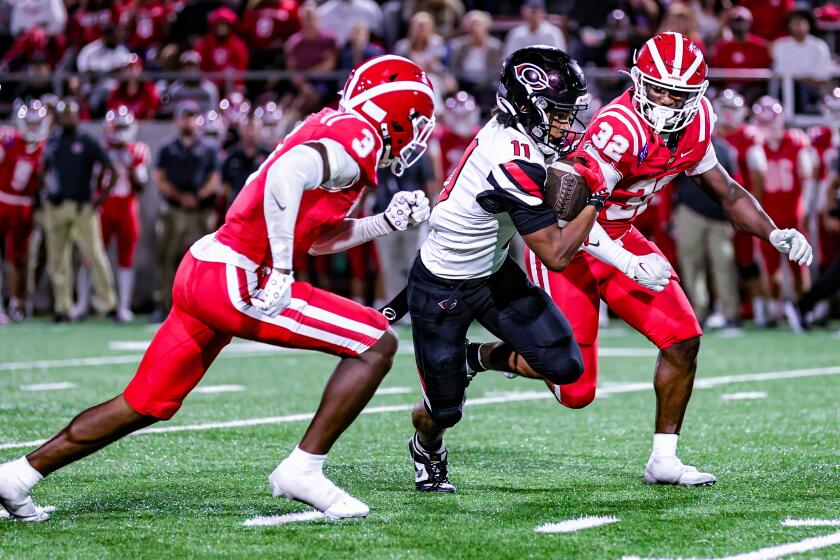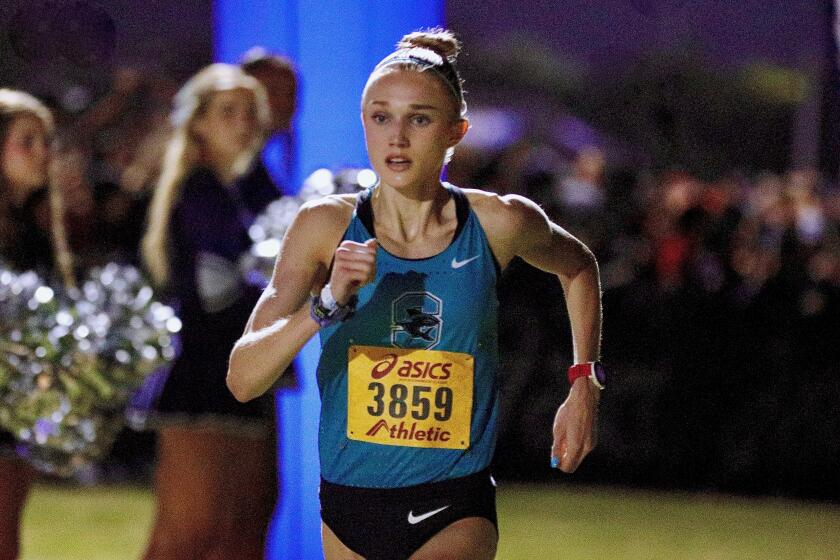Japanese Narrow Differential on the Diamond
Ask Fred McGriff if they play serious ball in the Japanese big leagues.
McGriff, one of the most productive members of the 1988 Toronto Blue Jays, flied to center field and struck out three times against four Japanese pitchers in Sunday’s final game of a seven-game matchup between major league and Japan league all-stars. McGriff ended the series a humble zero for 16, with six strikeouts.
And he wasn’t alone in his futility Sunday as the Japanese aces shut down the major-leaguers on five hits. Fortunately for the major-leaguers, the Japanese couldn’t score either, and the game ended 0-0, leaving the Americans with a three games-to-two edge, with two ties.
Yes, ties. Japanese rules allow games to end even-up once a time or innings limit is reached, and it had been decided not to play extra innings during this exhibition series. Sunday’s game, in any case, had to be finished before the major-leaguers’ trans-Pacific flight home.
But the final-game matching shutouts gave Japan something of a moral victory in the week-long goodwill series. Baseball, from high-school tournaments to professional games played in Tokyo’s domed Big Egg, is extremely popular here, but Japanese always have viewed their pro leagues as younger brothers to the U.S. majors.
The clean record of visiting major-leaguers held, but no Japanese team has come closer to winning. In 1986, the most recent previous tour, the Japanese went 1-6.
This time, they had the satisfaction of scoring against “Mr. Zero,” Cy Young Award winner Orel Hershiser, who returned home with an unfamiliar ERA of 7.34. Hershiser, before leaving early to help care for an ill infant son, was the focus for the Japanese media, both because of his great year for the Los Angeles Dodgers and because he dangled the possibility, always helpful for contract negotiations, of coming to Japan to pitch. But the World Series hero dished up two home runs and, in his second appearance, yielded seven hits and five runs in 3 1-3 innings.
The Japanese also had the satisfaction of winning the first game with a “sayonara hit,” as a ninth-inning game-winner is known here, a single by Kazuhiko Ishimine of the Hankyu Braves off San Diego relief ace Mark Davis. And Sunday, there was the delight of seeing speedster Vince Coleman picked off first base, as the impressive right-hander of the Yomiuri Giants, Masumi Kuwata, whirled on the mound and hung Coleman out to dry.
The major-league squad, led by Detroit Tigers Manager Sparky Anderson, agreed that the Japanese pitchers were the stars of their team. “Their pitching has been real strong,” Hershiser told reporters. “I think it’s the closest thing they have to the big leagues.”
Indeed, the major-leaguers managed only seven home runs in the seven games, two by Boston Red Sox outfielder Ellis Burks.
Not that the major-leaguers didn’t have a few fun games. After losing the opener, 2-1, and watching the Japanese come back with two runs in the ninth inning to tie the second game, 6-6, the major-leaguers shook off their jet lag and won the next three, 16-8, 8-2 and 3-1.
But the Japanese, who train intensively throughout the year, came back Saturday to show that their early success wasn’t just a function of the major-leaguers’ rustiness. Even after the major-leaguers had adjusted to the crowds, who tend to be eerily quiet except when football-style cheerleaders are directing loud and monotonous chants, they couldn’t contain the home team.
In Game 6, the Japanese rallied from a 3-0 deficit to win, 5-4. The rally was aided by Chicago Cubs pitcher Greg Maddux, who didn’t look sharp, and his Cubs teammate Rafael Palmeiro, who let a single roll under his glove and to the wall in left in an embarrassing, run-scoring error.
The major-leaguers seemed to have a good time, chucking a football around while the Japanese took their normal, very serious batting practice. But they also seemed, for the most part, to be playing to win. And at times -- Dave Henderson nailing a runner at third with a perfect peg, on the fly, from right field; Paul Molitor laying a bunt down the third-base line and hustling out a base hit, or stretching a bloop single into a double; Barry Larkin, the series MVP, batting nearly .500 -- they showed the big Japanese crowds the best of big-league baseball.
More to Read
Go beyond the scoreboard
Get the latest on L.A.'s teams in the daily Sports Report newsletter.
You may occasionally receive promotional content from the Los Angeles Times.










